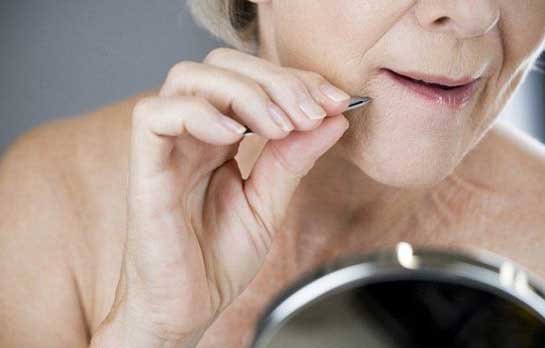
Age-Related Growth
As women age, chin hairs may become more prevalent, especially after menopause, due to hormonal imbalances.

Weight Fluctuations
Significant weight gain can disrupt hormone levels, leading to unwanted chin hair growth. Consulting a doctor for a health plan is advisable.

Hormonal Changes during Pregnancy
Pregnancy often triggers hormonal fluctuations, resulting in temporary chin hair growth, which typically resolves after childbirth.

Impact of Excessive Plucking
Frequent plucking of chin hairs can stimulate faster and thicker growth. Consider laser hair removal for longer-lasting results.

Medication Side Effects
Certain medications, such as some birth control pills, may cause hormonal imbalances, contributing to unwanted hair growth. Discuss alternative options with your doctor.

Polycystic Ovary Syndrome (PCOS)
PCOS, a condition affecting ovary function and hormone levels, can lead to chin hair growth among other symptoms. Consult a doctor if you suspect PCOS.

Cushing’s Syndrome Concerns
Excessive production of adrenocorticotropic hormone characterizes Cushing’s Syndrome, which can manifest in chin hair growth, among other symptoms. Seek medical advice if you notice such symptoms.

Influence of Genetics
Genetic predisposition may also play a role in chin hair growth. Laser and other treatments can help manage unwanted hair, but avoid excessive plucking.
